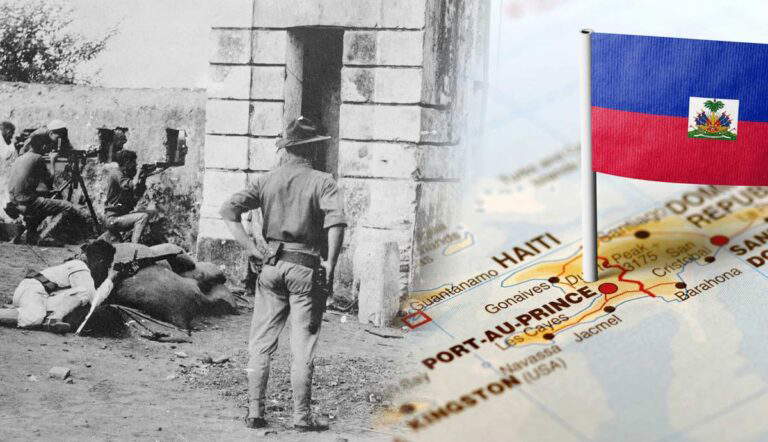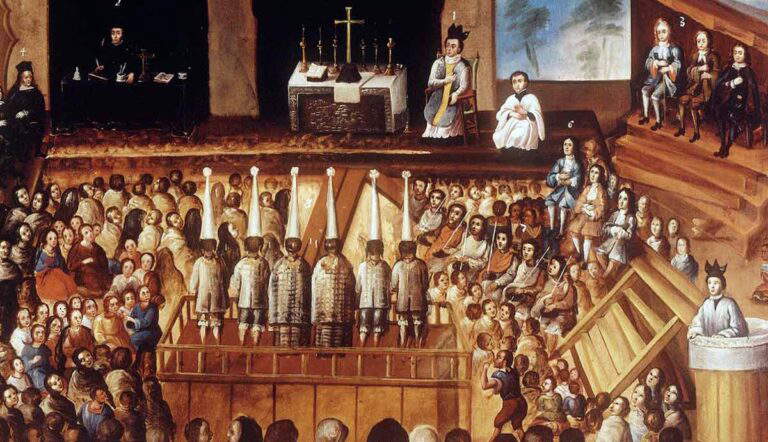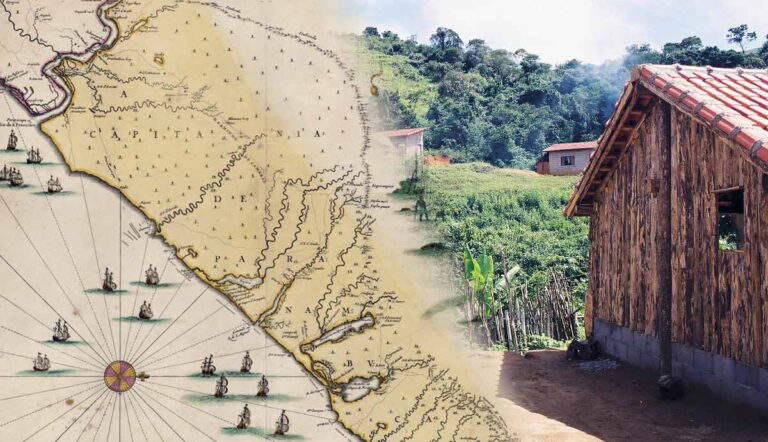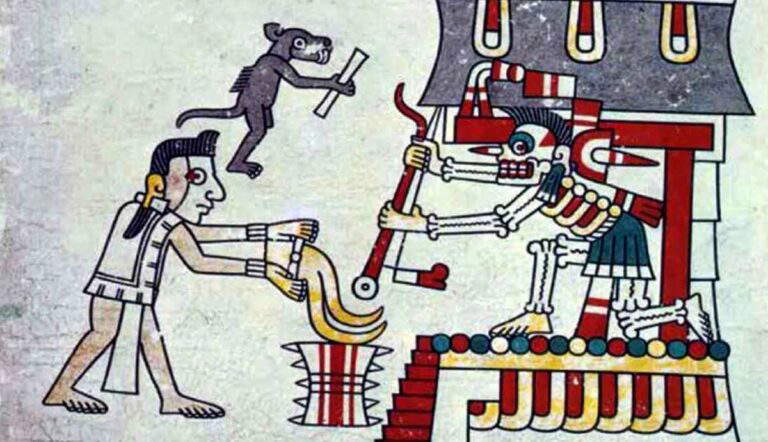
Marina Urdapilleta
As a historian by profession, Marina finds her heart in the depths of intellectual narratives and the expansive realm of global history. She studied history in Mexico, and is passionate about any era of this country's rich past. Beyond the archives, you can find her delving into classic literature, experimenting in the kitchen, or practicing yoga.
Articles by Marina Urdapilleta
 Why Did the United States Occupy Haiti?
Why Did the United States Occupy Haiti?The United States occupation of Haiti (1915-1934) was driven by strategic, economic, and colonial interests, aiming to control the Caribbean and protect regional US influence.
 The Difficult Legacy of the Spanish Inquisition in the Americas
The Difficult Legacy of the Spanish Inquisition in the AmericasThe Spanish Inquisition in Latin America went beyond religious persecution. Its targeting of Jews and witches enforced strict control mechanisms that redefined cultural norms.
The Spanish Inquisition in Latin America went beyond religious persecution. Its targeting of Jews and witches enforced strict control mechanisms that redefined cultural norms.
 Quilombos, Colonial Brazil’s Escaped Slave Communities
Quilombos, Colonial Brazil’s Escaped Slave CommunitiesQuilombos were communities formed by enslaved Africans who, upon escaping from plantations, rebuilt their traditions, developed sustainable alternatives for living, and became symbols of resistance.
Quilombos were communities formed by enslaved Africans who, upon escaping from plantations, rebuilt their traditions, developed sustainable alternatives for living, and became symbols of resistance.
 A Descent Through the Nine Levels of the Aztec Underworld
A Descent Through the Nine Levels of the Aztec UnderworldIn Mesoamerica, upon dying, individuals had to make a journey through nine levels full of dangers, such as rivers, winds, and animals, to reach rest in the underworld.
In Mesoamerica, upon dying, individuals had to make a journey through nine levels full of dangers, such as rivers, winds, and animals, to reach rest in the underworld.
 How Did the Aztec and Maya Perceive Time?
How Did the Aztec and Maya Perceive Time?In Mesoamerica, time and calendars were sacred, connecting the divine, nature, and humanity, guiding both daily life as well as rituals, and legitimizing power.
In Mesoamerica, time and calendars were sacred, connecting the divine, nature, and humanity, guiding both daily life as well as rituals, and legitimizing power.
 The Poignant Tale of Mexico’s Last Emperor and His Wife: Maximilian and Carlota
The Poignant Tale of Mexico’s Last Emperor and His Wife: Maximilian and CarlotaMaximilian and Carlota’s short-lived reign faced dramatic challenges and ended in tragedy, showcasing the struggles of an ill-fated imperial adventure in a polarized, war-torn country.
 Mexican Muralism: Defining a Nation’s Post-Revolution Identity
Mexican Muralism: Defining a Nation’s Post-Revolution IdentityMuralism helped to shape Mexican post-revolutionary identity by highlighting political action in an art form accessible to a broader population.
Muralism helped to shape Mexican post-revolutionary identity by highlighting political action in an art form accessible to a broader population.
 Gabriela Mistral’s Biography: A Deep Dive Into Her Life and Work
Gabriela Mistral’s Biography: A Deep Dive Into Her Life and WorkGabriela Mistral, a renowned Latin American educator, poet, intellectual, and diplomat, was driven by social justice, a love for children, natural landscapes, and women's empowerment.
 Manuela Sáenz: The Forgotten Heroine of Latin American Independence
Manuela Sáenz: The Forgotten Heroine of Latin American IndependenceManuela Sáenz was a crucial yet often overlooked figure in Latin America’s struggle for independence, challenging male domination and the social norms of her time.
Manuela Sáenz was a crucial yet often overlooked figure in Latin America’s struggle for independence, challenging male domination and the social norms of her time.
 Rigoberta Menchú: Fighting for Indigenous Rights in Guatemala
Rigoberta Menchú: Fighting for Indigenous Rights in GuatemalaAfter enduring a childhood of poverty, violence, and discrimination, Rigoberta Menchú, an Indigenous Guatemalan woman, has dedicated her life to fighting for Indigenous rights.
 5 Notable Women Who Transformed Latin America
5 Notable Women Who Transformed Latin AmericaGet to know five notable Latin American women who challenged the male-dominated spheres of everything from war to literature in order to make their voices heard.
Get to know five notable Latin American women who challenged the male-dominated spheres of everything from war to literature in order to make their voices heard.
 What Was the Ecological Impact of the Columbian Exchange?
What Was the Ecological Impact of the Columbian Exchange?The conquest of the Americas significantly altered the environment. Diseases, plants, and animals introduced by European colonizers drastically transformed ecosystems, with complex environmental consequences.
The conquest of the Americas significantly altered the environment. Diseases, plants, and animals introduced by European colonizers drastically transformed ecosystems, with complex environmental consequences.